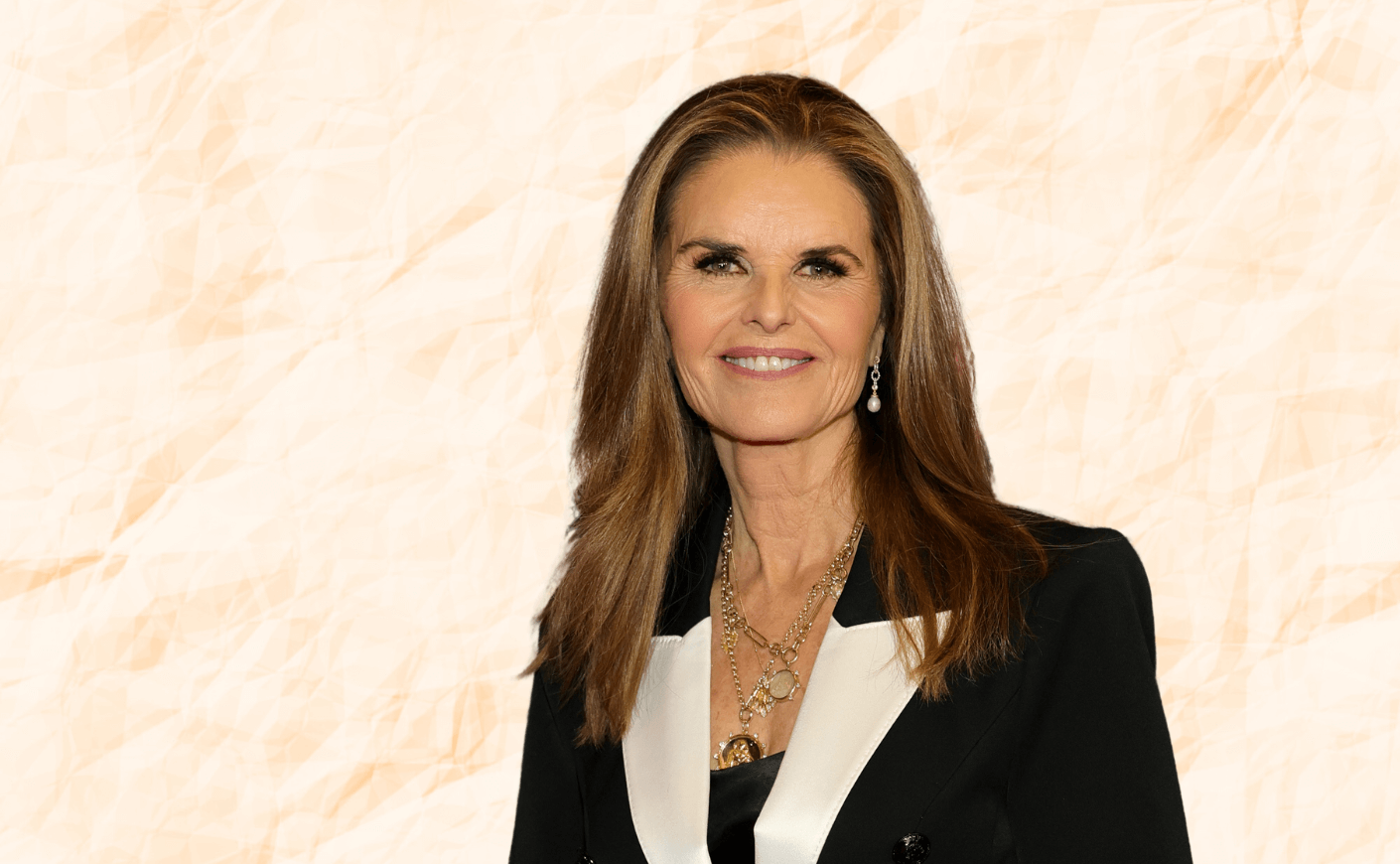Maria Shriver is a dear friend, and one of the most thoughtful people I know. Over the years, I’ve watched her navigate immense joy and deep heartbreak with incredible grace — and now she’s sharing that journey in a whole new way. Her latest book, I Am Maria: My Reflections and Poems on Heartbreak, Healing, and Finding Your Way Home, surprised even her: It’s a deeply personal collection of poems and reflections that poured straight from her heart, and onto the page.
Maria never set out to write a book of poetry. But in the aftermath of a life turned upside-down, the words began to flow. What started as a private form of healing turned into something far more universal: an offering to anyone who’s ever felt invisible, overwhelmed, or simply in need of a moment of reflection.
I asked Maria what inspired her to publish something so raw, how her divorce and family history shaped the book, and what she hopes readers will take away from her words. I think you’ll find her answers just as honest, wise, and grounded as she is.
Katie Couric: You write that you never thought you would write a book of poems. What changed?
Maria Shriver: I started writing poems! They started flowing out of me. I didn't grow up writing poems, so I was surprised by the raw, guttural nature of what flowed. My daughter calls it "reporter poetry." Others have told me it’s warrior poetry or heart-based poetry. I hope people find it approachable, accessible, and relatable.
Your book's introduction touches on your experience with trauma and how your family coped by "annihilating the feelings by pretending they didn’t exist." Initially, you didn't want anyone to read your poems because they're deeply personal and vulnerable. What made you decide to publish them?
So many people encouraged me after reading them. I knew publishing a book of reflections combined with poems was unconventional, but it felt right for me. It also felt really scary at times, so I knew then I had to do it.
Recovering from your divorce was a pivotal moment that influenced you to start writing. You share that you had to pick yourself off a hotel room floor and remind yourself this was the start, not the end of your life. When you look back at that time, what do you wish you could say to that version of Maria?
You are going to be OK. You have everything you need within you to be OK. Don’t try to be in a hurry. It’s going to take time, but you will get to where you want to go.
Are there any writers or poets who have influenced your work? How have they shaped your approach to writing?
Yes, absolutely: My hero, Mary Oliver, Jon O’Donohue, Emily Dickinson, and Derek Walcott, to name a few. Anne Morrow Lindbergh influenced me as well — she’s not a poet per se, but she has heavily influenced me.
You touch on the similarities and differences between you and your mother as her only daughter. Do you see any of these same qualities between you and your children?
My kids, first and foremost, are their own people. They grew up differently than I did during a different time with different expectations and experiences.
Hopefully they see their childhoods as calmer than mine, more private and more protected. My kids and I share a sense of humor and a loyalty to one another. We all love games and sports.
In your book, you write about feeling invisible during various periods of your life, from childhood to adulthood, which is highlighted in the poem "Small." This is a sentiment many people, especially women, can relate to. What advice would you give to people who may be in one of those phases of life now?
I would say to remember that everyone feels this way at points in life. How could they not? In our society today, it’s hard not to feel small sometimes, with so many comparisons. Society tells you this is what success looks like and if you aren’t that, you feel less-than, oftentimes.
Have your personal writings affected your relationships with family and friends? If so, how?
Yes it’s brought my siblings and several of my cousins closer. It’s opened a door to think about our shared experience and to be okay talking about things we don’t usually talk about.
Many readers may read your book seeking insights into your life through your poetry. However, you mention that these poems are not just about you, but for readers to reflect upon their own lives. What do you hope your readers will gain from this collection?
I hope people will read this book and look within. I hope they make space to hear their own voices and really speak to themselves about their lives. People are going through so much, carrying so much, dealing with so much. I feel It would help people to let that voice within tell them about the load they are carrying, the grief they are experiencing, the forgiveness of self and others. Nobody’s life is easy. Nobody’s life turns out exactly how they imagined. Writing to your life, writing to your heart is courageous work. It lightens your load, it brings you home to yourself.
I Am Maria: My Reflections and Poems on Heartbreak, Healing, and Finding Your Way Home, is available now wherever books are sold.









